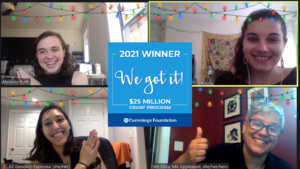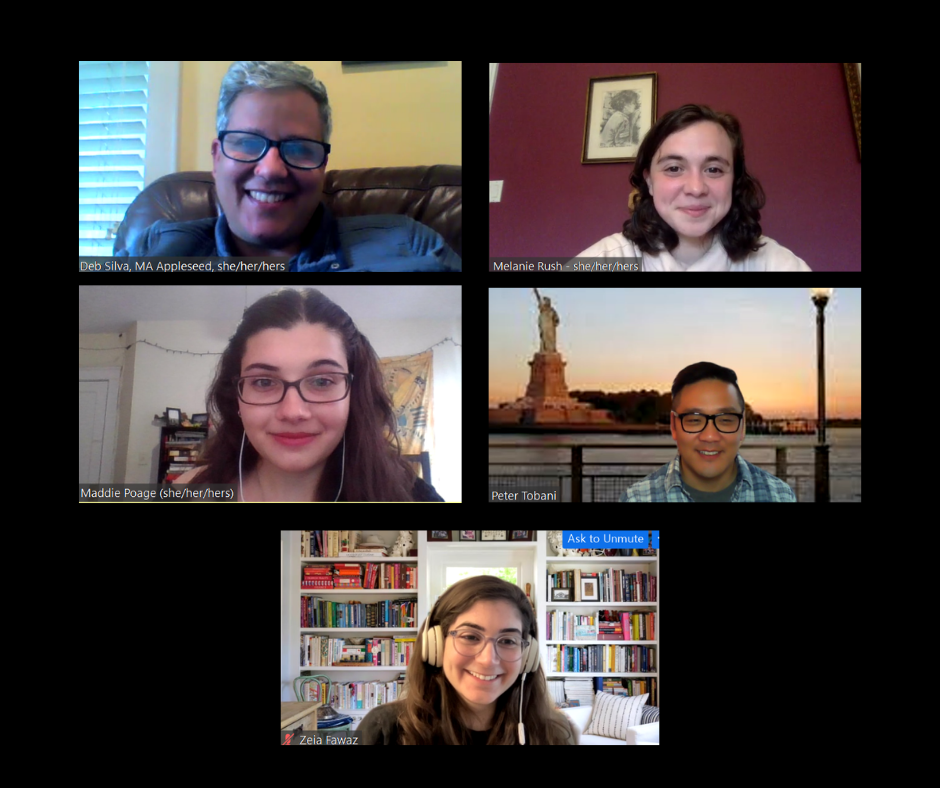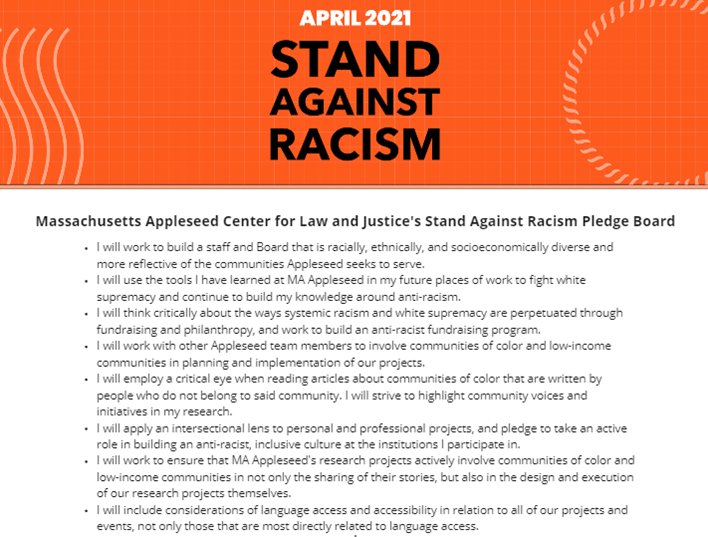Boston nonprofit receives 4 years of funding from Cummings Foundation
For Immediate Release
Contact: Deborah Silva, Massachusetts Appleseed, 617-482-8686, deb@massappleseed.org
Contact: Alison Harding, Cummings Foundation, 781-932-7093, aeh@cummings.com
BOSTON, June 1, 2021 – Massachusetts Appleseed Center for Law and Justice is one of 140 local nonprofits to receive grants of $100,000 to $500,000 each through Cummings Foundation’s $25 Million Grant Program. The Boston-based organization was chosen from a total of 590 applicants during a competitive review process. It will receive $100,000 over four years.
Massachusetts Appleseed is a nonprofit organization that works in partnership with community organizations, pro bono attorneys, coalitions, and community members to promote equal rights and opportunities for Massachusetts residents by developing and advocating for systemic solutions to social justice issues. The organization uses policy-driven investigations and powerful advocacy to remove the systemic barriers that prevent Massachusetts’ vulnerable populations from accessing their legal rights, education, and economic stability.

Massachusetts Appleseed staff celebrate Cummings Foundation’s generous support.
“We are deeply grateful for this extraordinary and generous support from Cummings Foundation,” said Deborah Silva, Executive Director of Massachusetts Appleseed. “Over the past year, we have seen the needs of our communities rise, systemic inequities worsen, and the COVID-19 pandemic disproportionately devastate the most vulnerable among us. This grant will help us meet this historic moment and push for community-informed solutions to ensure Massachusetts families and youth can exercise their legal rights, build pathways out of poverty and crisis, and achieve meaningful access to essential services and opportunities.”
These funds will support and grow Massachusetts Appleseed’s many initiatives to expand access to opportunity and rebalance the scales of the civil justice system to ensure fair and equitable outcomes for all. In particular, this award will support the organization’s work to end language discrimination immigrant families face in state courts and agencies and to disrupt the school-to-prison pipeline, focusing on the ways girls of color are unjustly targeted and punished in schools. This funding will also support Massachusetts Appleseed’s work to help young people experiencing homelessness overcome legal barriers and build safe, stable futures.
The Cummings $25 Million Grant Program supports Massachusetts nonprofits that are based in and primarily serve Middlesex, Essex, and Suffolk counties.
Through this place-based initiative, Cummings Foundation aims to give back in the area where it owns commercial buildings, all of which are managed, at no cost to the Foundation, by its affiliate, Cummings Properties. This Woburn-based commercial real estate firm leases and manages 10 million square feet of debt-free space, the majority of which exclusively benefits the Foundation.
“We aim to help meet the needs of people in all segments of our local community,” said Cummings Foundation executive director Joel Swets. “It is the incredible organizations we fund, however, that do the actual daily work to empower our neighbors, educate our children, fight for equity, and so much more.”
With the help of about 80 volunteers, the Foundation first identified 140 organizations to receive grants of at least $100,000 each. Among the winners were first-time recipients as well as nonprofits that had previously received Cummings Foundation grants.
“We have adopted a democratic approach to philanthropy, which empowers an impressive roster of dedicated volunteers to decide more than half of all our grant winners each year,” said Swets. “We benefit from their diverse backgrounds and perspectives; they benefit from a meaningful and fulfilling experience; and the nonprofits often benefit from increased exposure and new advocates.”
This year’s grant recipients represent a wide variety of causes, including social justice, homelessness prevention, affordable housing, education, violence prevention, and food insecurity. The nonprofits are spread across 43 different cities and towns.
The complete list of 140 grant winners, plus more than 800 previous recipients, is available at www.CummingsFoundation.org.
Cummings Foundation has now awarded more than $300 million to greater Boston nonprofits.
About Massachusetts Appleseed Center for Law and Justice
Massachusetts Appleseed’s mission is to promote equal rights and opportunities for Massachusetts residents by developing and advocating for systemic solutions to social justice issues. The nonprofit researches and identifies the ways in which the justice system, schools, and government agencies have systematically failed impoverished and vulnerable communities, challenges harmful public policies that perpetuate injustices and inequities, advocates for long-term solutions, and develops know-your-rights resources for those impacted. (https://massappleseed.org)
About Cummings Foundation
Woburn-based Cummings Foundation, Inc. was established in 1986 by Joyce and Bill Cummings and has grown to be one of the three largest private foundations in New England. The Foundation directly operates its own charitable subsidiaries, including New Horizons retirement communities in Marlborough and Woburn, and Veterinary School at Tufts, LLC in North Grafton. Additional information is available at www.CummingsFoundation.org.



